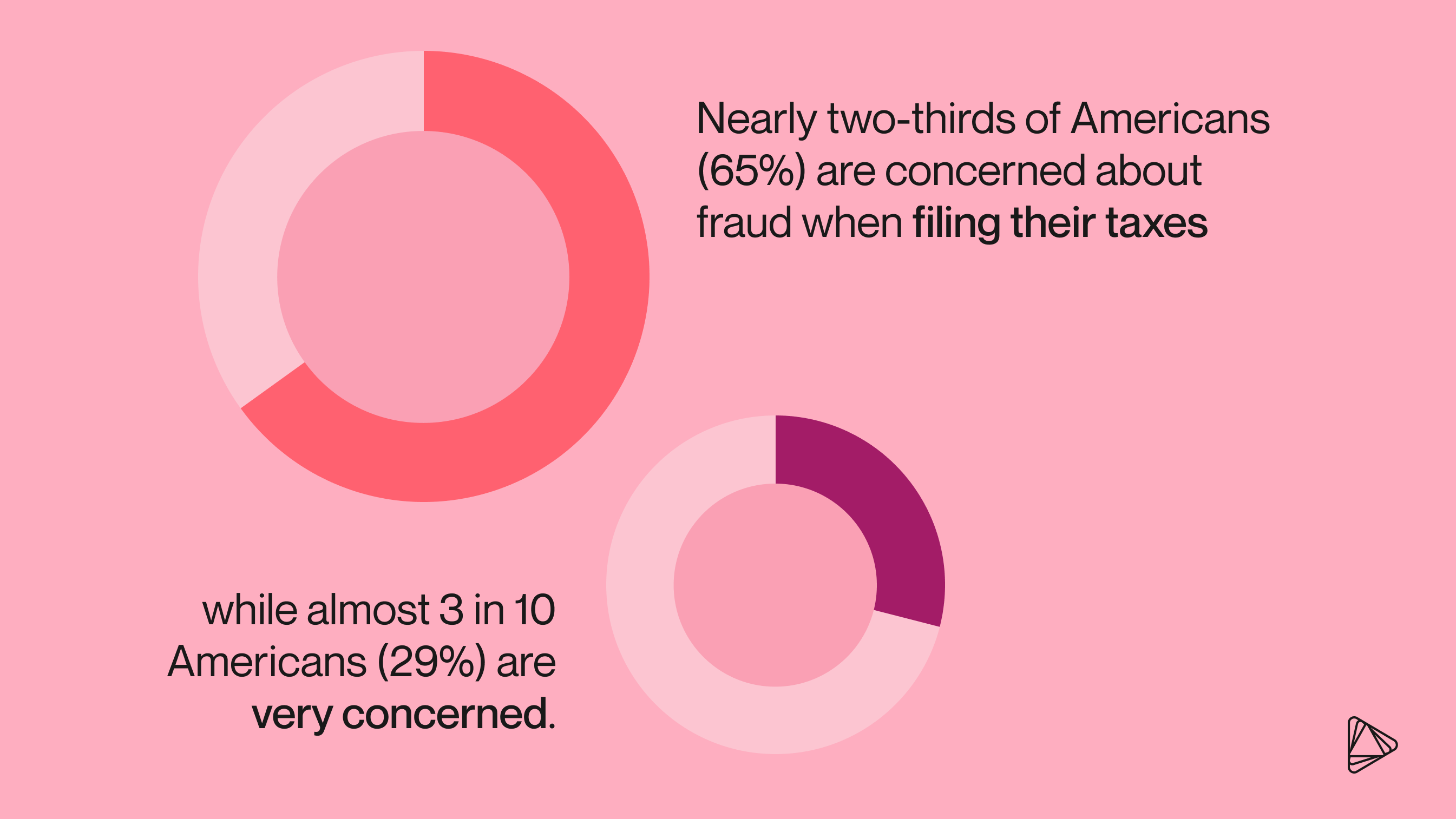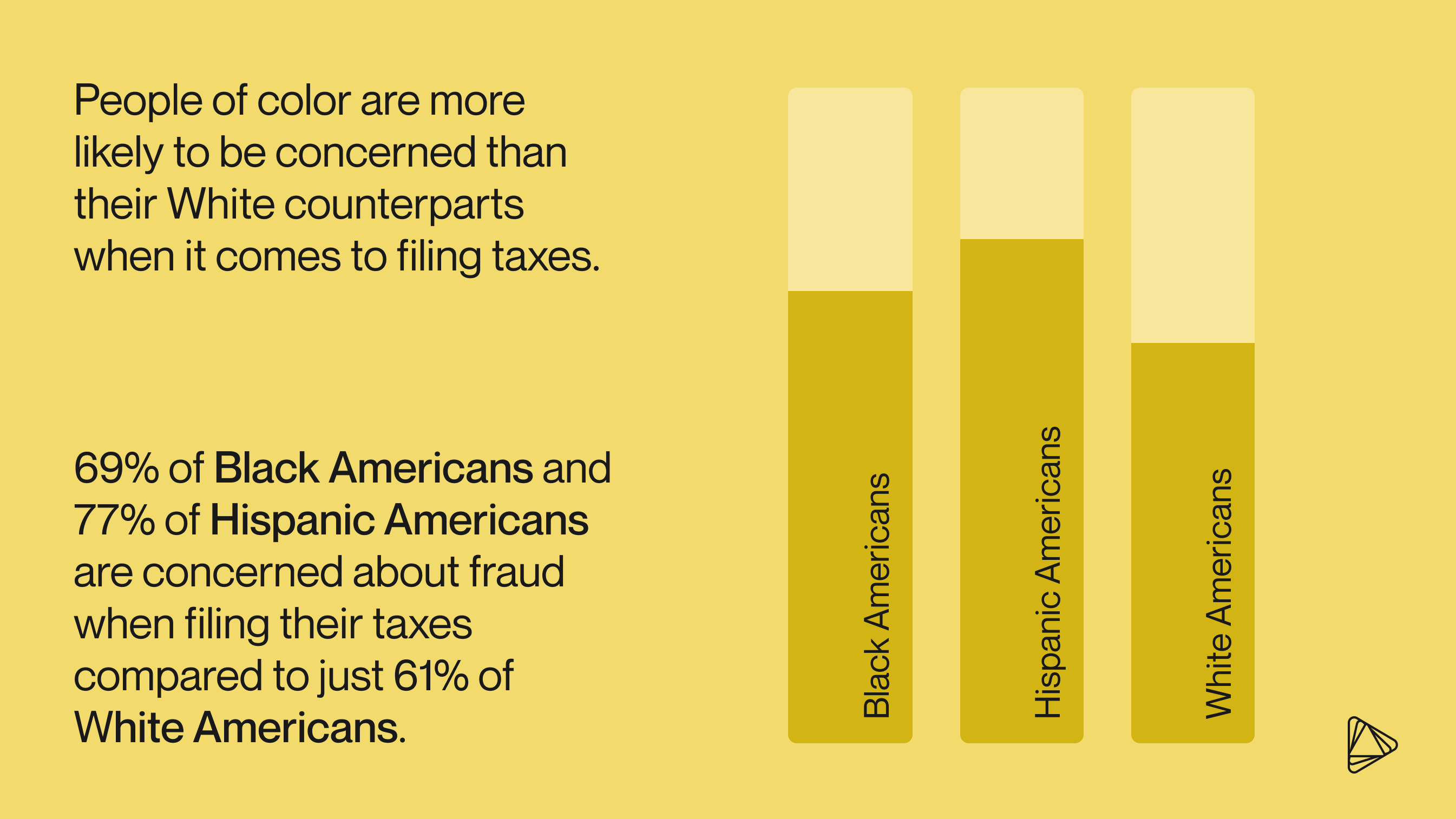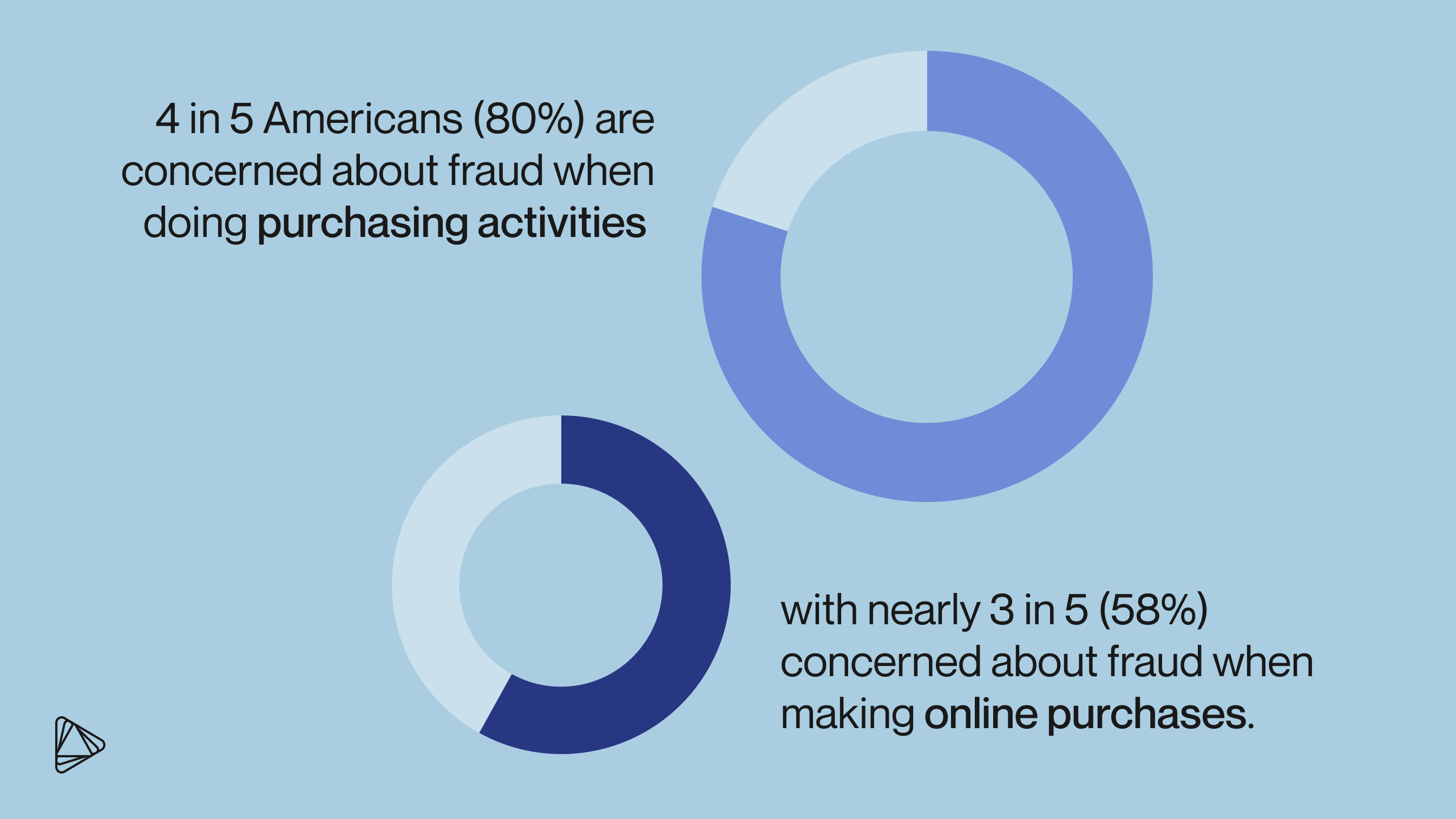Share
Nearly two-thirds of Americans report concerns about tax fraud
Apr 6, 2023

According to data from Pew Research Center, 56% of Americans report that they dislike or hate doing their taxes. Reasons range from the time commitment and tedium to the complex nature of figuring out what you owe each year. And more recently, there’s a new problem plaguing Americans: identity fraud.
A new study conducted online by The Harris Poll and commissioned by Alloy found that nearly two-thirds of Americans (65%) are concerned about fraud when filing their taxes, while almost 3 in 10 Americans (29%) are very concerned. These results come as identity fraud is rising across the board: according to the FTC’s 2023 Consumer Sentinel Network report, fraud, identity theft, and other complaints have increased steadily since 2010, peaking at 5.9M consumer complaints in 2021.

During the pandemic, fraud spiked due to rapid digitization in financial services opening up new targets for fraudsters. Fraudsters also collected $80B as a result of attacks on financial institutions (FIs) participating in the government’s Paycheck Protection Program (PPP). Today, fraudsters are flush with cash and more well-positioned to strike than ever before. Americans filing their taxes likely have good reason to be worried about fraud (e.g., having your personal information stolen, false tax returns filed under your name.)
Younger Americans are more likely to be concerned about fraud when filing taxes
Younger Americans are more likely to be concerned about fraud when it comes to tax filing than older Americans: 68% of Americans aged 18-34 and 70% of those aged 35-44 are concerned about fraud when filing their taxes compared to only 59% of those aged 65+.

This discrepancy in concern amongst age groups might be because of a lack of education about fraud amongst older generations or a decreased willingness to report and/or talk about it. According to the FTC’s 2023 Consumer Sentinel Network report, younger people reported losing money to fraud more often than older people. But when people aged 70+ had a loss, the median loss was much higher ($1,000 lost by those aged 70-79 compared to $548 lost by those aged 20-29.)
People of color are more likely to be concerned about fraud when filing taxes
Additionally, people of color are more likely to be concerned than their white counterparts when it comes to filing taxes. 69% of Black Americans and 77% of Hispanic Americans are concerned about fraud when filing their taxes compared to just 61% of White Americans. This concern is likely founded: a 2016 report by the FTC found that 17.3% of Black Americans and 13.4% of Hispanics were victims of fraud, compared to 9% of non-Hispanic Whites.

Americans’ concern about fraud extends beyond tax season to their daily purchasing activities, too (e.g., somebody else making purchases in your name, phishing schemes, personal information stolen.) 4 in 5 Americans (80%) are concerned about fraud when doing purchasing activities, with nearly 3 in 5 (58%) concerned about fraud when making online purchases.

While older adults may be less likely to be concerned than younger adults about tax fraud, they are more likely to be concerned about fraud with online purchasing. 66% of Americans aged 65+ are concerned about fraud when making online purchases, compared to 51% of those aged 18-34 and 52% of those aged 35-44.
Keeping consumers’ data safe
Fraud conducted during tax filing or online purchasing may result in the theft of Americans’ personally identifiable information (PII), which can then be used by fraudsters to create synthetic identities: false identities that combine real Americans’ data with fabricated data in order to steal money from FIs. Beyond the threat of monetary loss to their business, companies also have a responsibility to implement a fraud prevention program that keeps their customers’ assets and PII safe as Americans’ concern over fraud grows. Find out how Alloy can help.
Survey Methodology:
This survey was conducted online within the United States by The Harris Poll on behalf of Alloy from March 14 - 16, 2023 among 2,052 U.S. adults ages 18+. The sampling precision of Harris online polls is measured by using a Bayesian credible interval. For this study, the sample data is accurate to within +/- 2.8 percentage points using a 95% confidence level. For complete survey methodology, including weighting variables and subgroup sample sizes, please contact Kylee Sibilia ([email protected]).





